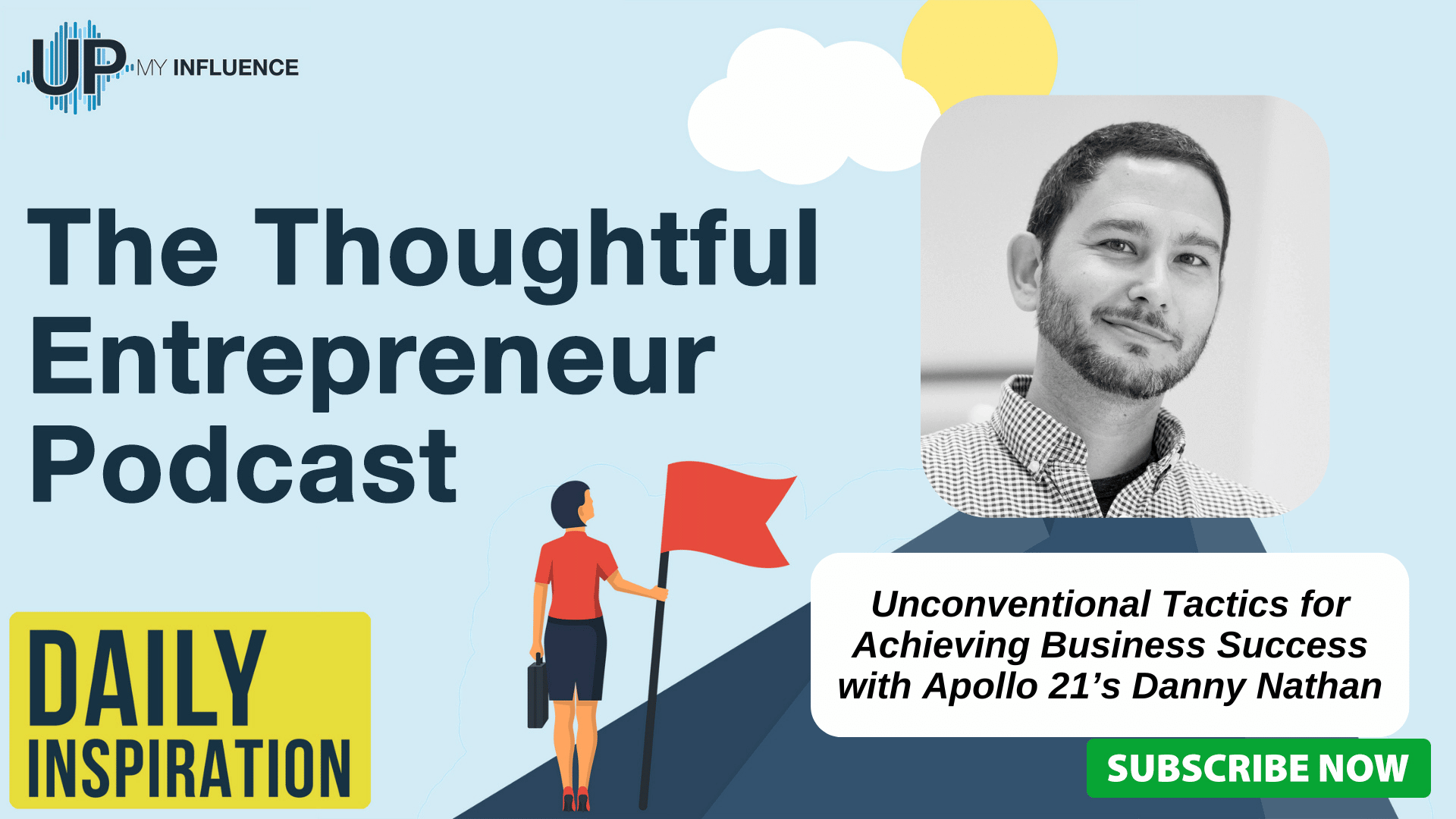THE THOUGHTFUL ENTREPRENEUR PODCAST
 Strategic Marketing, Financial Management, and Innovation
Strategic Marketing, Financial Management, and Innovation
In a recent episode of The Thoughtful Entrepreneur Show, host Josh Elledge sat down with Danny Nathan, the founder and CEO of Apollo 21, to discuss the intricacies of entrepreneurial success. This episode is packed with valuable insights and actionable advice for entrepreneurs at all stages of their journey. Below, we break down the key themes and tips from their conversation, providing you with a detailed guide to mastering your entrepreneurial endeavors.
Danny Nathan emphasizes the importance of a growth mindset. Entrepreneurs must be willing to learn, adapt, and grow continuously. This mindset allows you to see challenges as opportunities rather than obstacles. Actionable advice includes investing time in continuous learning, being open to pivoting your business model based on market feedback, and developing resilience to bounce back from failures.
In today’s digital age, having a robust online presence is non-negotiable. Danny Nathan highlights the importance of leveraging digital marketing strategies to reach and engage your target audience. Effective financial management is also critical for the sustainability of your business. Monitoring cash flow and financial health, creating a budget, and using financial management tools are essential practices. Staying ahead of industry trends through market research and customer feedback, and building strategic relationships through networking and partnerships, can open doors to new opportunities and resources. Implement these actionable tips and insights to navigate the entrepreneurial landscape with confidence and achieve your business goals.
About Danny Nathan:
After 20 years of product and technology experience, Danny has developed a habit of helping companies create new products & services and launch new ventures. In the past, he’s been called a product person, a UX guy, a designer, a strategist, a marketer, a creative (and a few other choice names like “The Cleaner”).
Danny has led product build and launch efforts at an international scale, run countless design sprints, and founded multiple companies. He’s applied his expertise to a variety of companies ranging from pre-seed startups to Fortune 100 corporations, including: American Express, Dyson, General Mills, the MoMA, Getty Images, Legendary Pictures, and many more.
About Apollo 21:
Apollo 21 helps organizations leverage venture driven growth and removes barriers to scale by building technology that solves complex business and operational challenges. We sit at the intersection of a product design studio, a venture studio, and a management consultancy.
Apply to be a Guest on The Thoughtful Entrepreneur: https://go.upmyinfluence.com/podcast-guest
Links Mentioned in this Episode:
Want to learn more? Check out Apollo 21 website at https://www.apollo21.io/
Check out Apollo 21 on LinkedIn at https://www.linkedin.com/company/apollo21io/
Check out Danny Nathan on LinkedIn at https://www.linkedin.com/in/amongmany/
Don’t forget to subscribe to The Thoughtful Entrepreneur and thank you for listening. Tune in next time!
More from UpMyInfluence:
We are actively booking guests for our The Thoughtful Entrepreneur. Schedule HERE.
Are you a 6-figure consultant? I’ve got high-level intros for you. Learn more here.
What is your #1 Lead Generation BLOCKER? Take my free quiz here.
Want to learn more about all the podcasts managed by UpMyInfluence? Opt in here.


